A Shoe for Summer's End
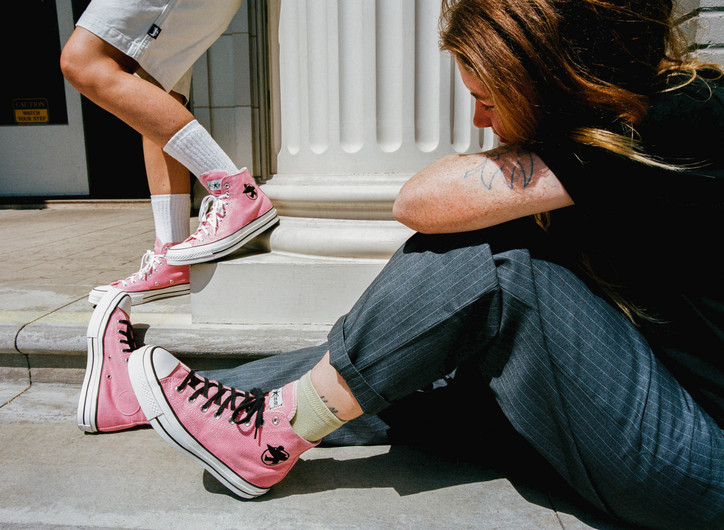
The Stüssy & Converse collection is available worldwide at select chapter stores, select Dover Street Market locations and stussy.com on Friday, August 26th.
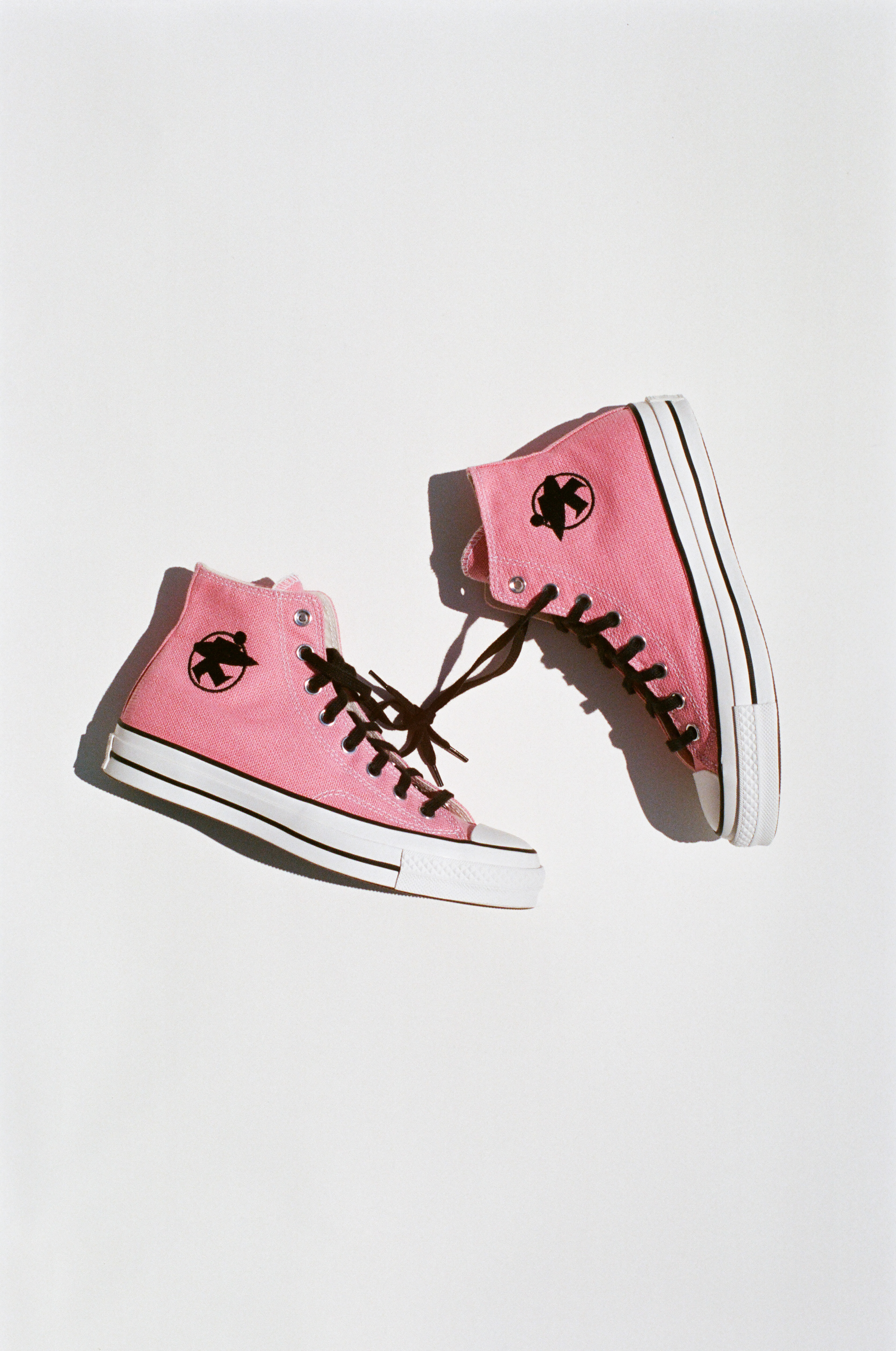
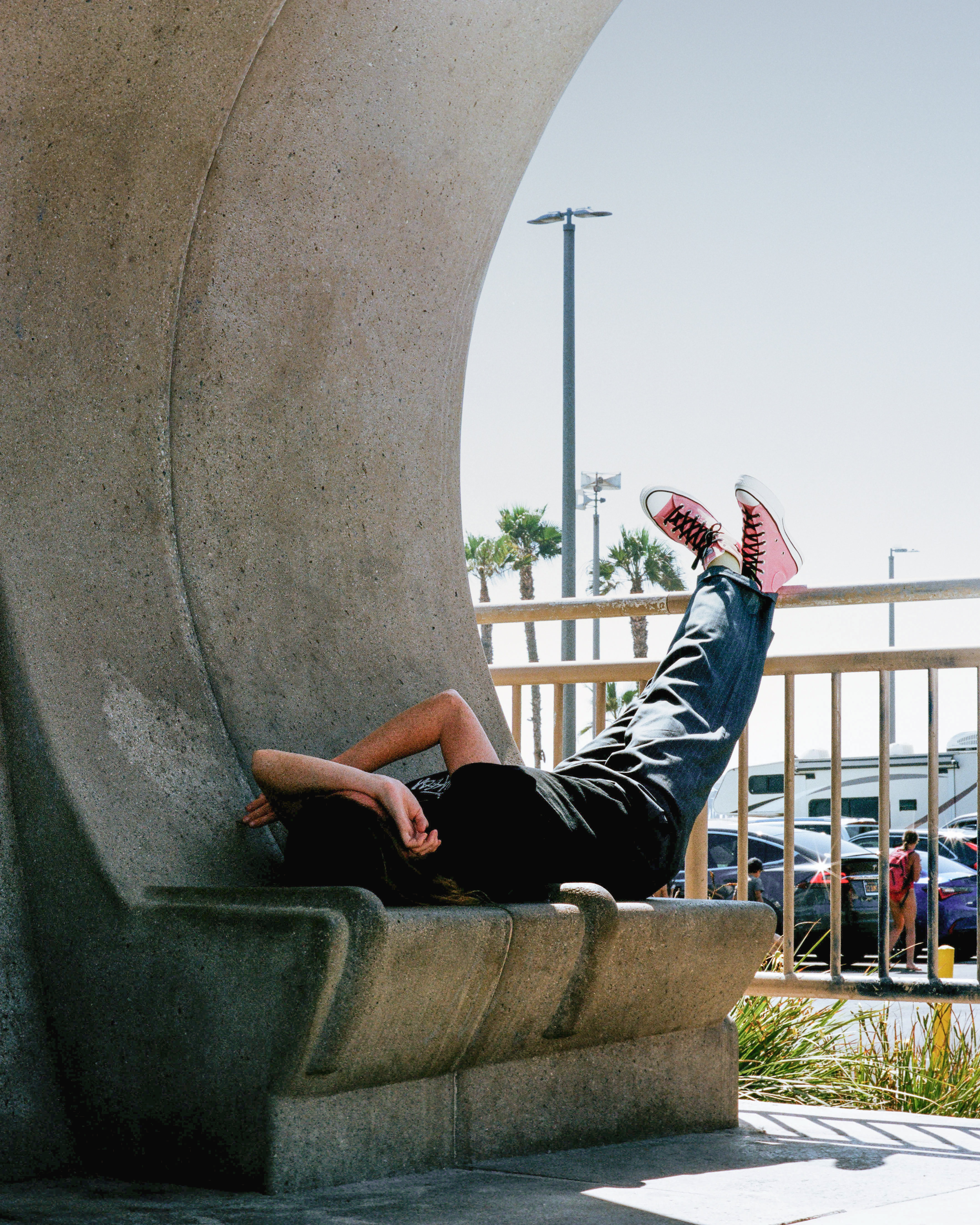
Stay informed on our latest news!

The Stüssy & Converse collection is available worldwide at select chapter stores, select Dover Street Market locations and stussy.com on Friday, August 26th.


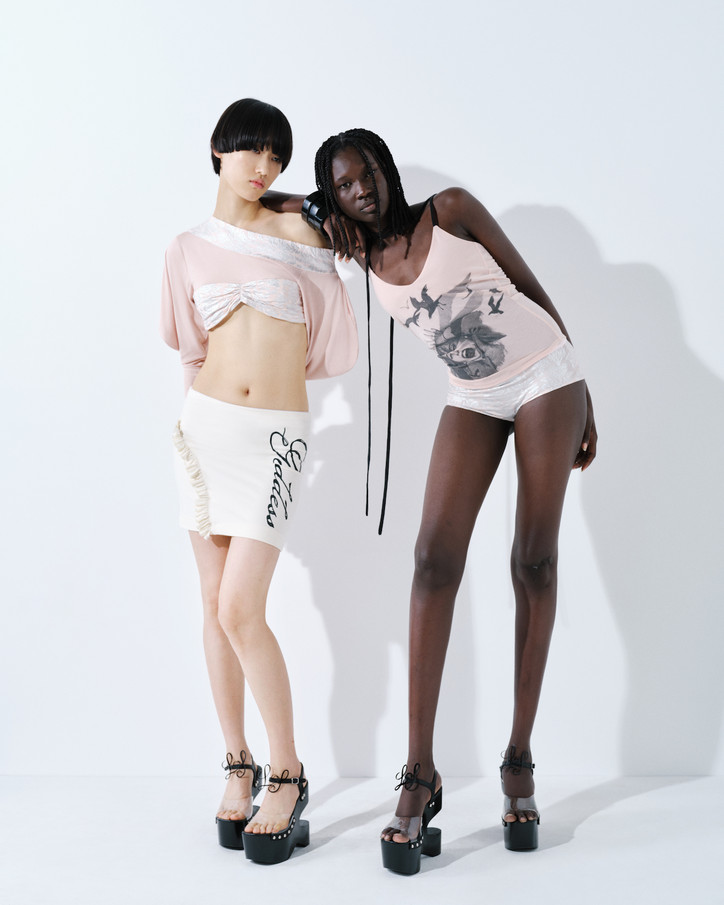
How's London Fashion Week going?
It's good. I haven't done much for it, to be honest, just my collection drop. I went to my friends' party on the weekend, but it wasn't a fashion party, and otherwise, I'm chilling. I'm quite tired from everything, so I need some rest.
When you do get downtime, is there a particular place you go for inspiration?
I mainly go to the internet to be honest, either browsing eBay, Vinted, or streaming movies. Otherwise I also like heading to Prince Charles Cinema or the BFI. They alway have good programs.
I love Prince Charles Cinema.
Me and my best friend, June, went not that long ago to this movie marathon there. It was all David Lynch films, and it went from 11 PM to 9 AM.
That’s hardcore. Did you guys have a drink or something to get through it?
They had a coffee machine, so we had like seven coffees. We both fell asleep at certain moments—people brought blankets and pillows, and we wished we did too.
I notice your research seems to consistently reference the films you watch.
My hobbies inform my work, but it very much depends on what I'm into at the moment of the collection being developed. For some reason, it's never music though.
The new SS25 collection, Farewell Princess, is named after the New York Post headline following Grace Kelly's death. How did you come across that issue?
For a while, I was listening to a podcast that had a season about dead blondes from Hollywood. I was super into it, and one of the episodes focused on Grace Kelly. The series covered the different women from the last century, and at some point I was curious to see how the newspapers looked when they died, what they were saying compared to the podcast. And I thought Farewell Princess was so nice. The other ones were more like, Jayne Mansfield Just Died.
Sounds, not gory, but just…
Straight to the point, where Farwell Princess one was more poetic. And I was already thinking I was going to do my collection on this podcast since I was spending hours and hours listening to it, but the title was going to be different. It was going to be Every girl for herself, for herself and god against all, which encompasses the whole season of this podcast and references a movie, Every Man for Himself and God Against All. But then, when I read the headline, it made more sense to me— as well that my last collection had a really long name.
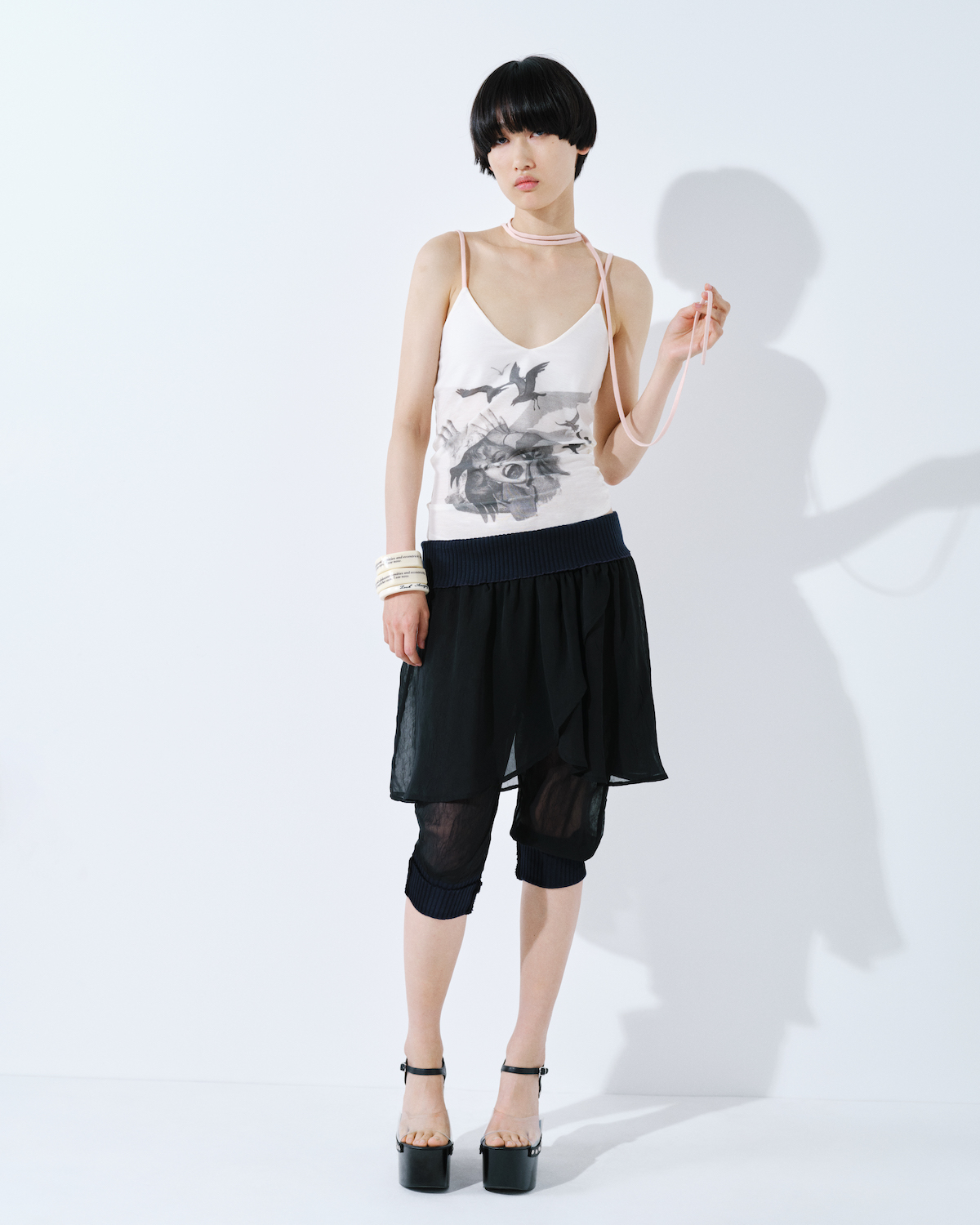
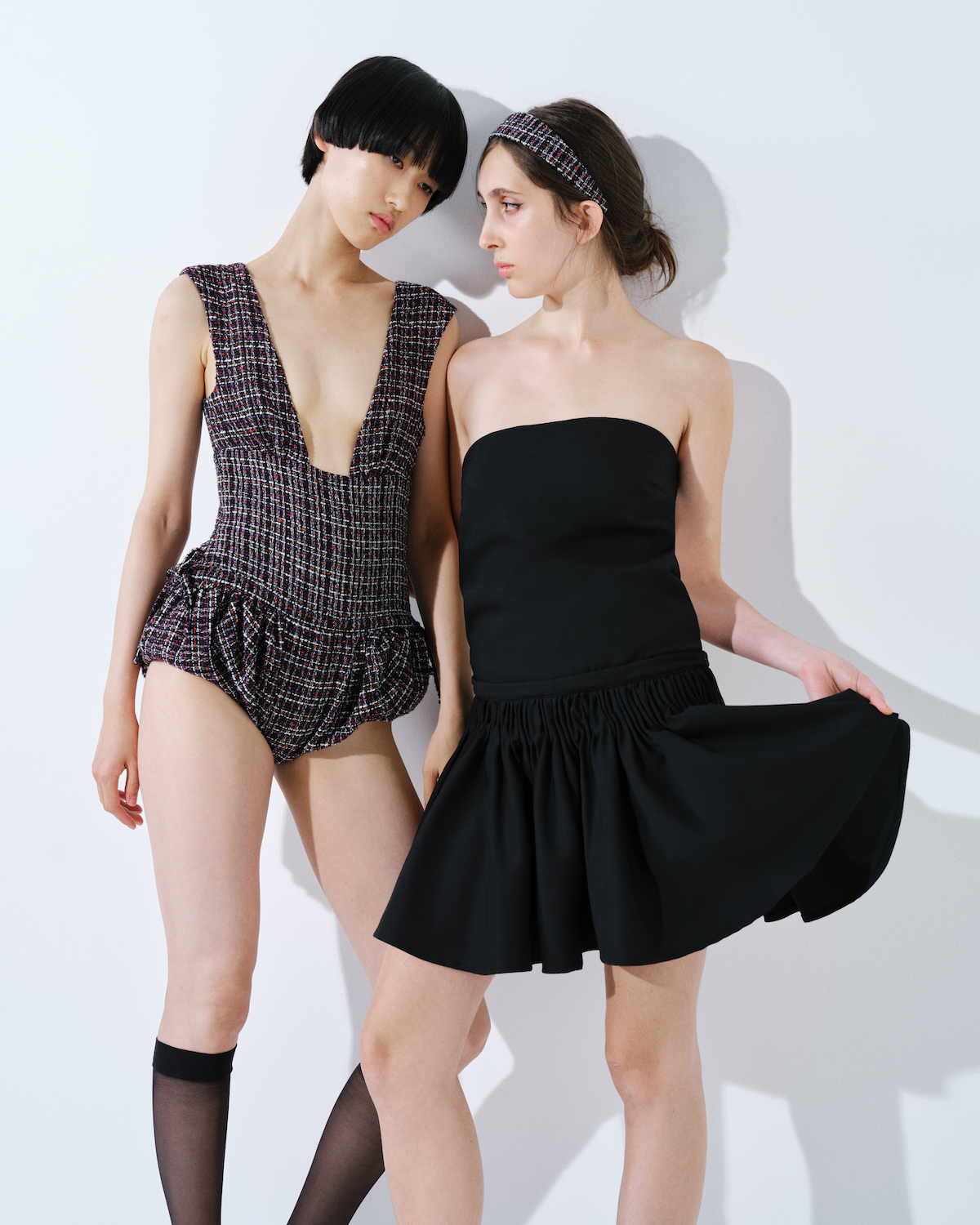
Do you have a favorite Grace Kelly look?
I really love her looks in films before she became a princess; there is one in the last scenes of The Country Girl. I like that movie because her look is not Grace Kelly as you would imagine, it's quite nerdy. Though at the end, she's wearing this very Grace Kelly black dress and still has her glasses on, but now in this look, they are super chic, so it's so nice.
I love her wedding dress. How does modern Hollywood style compare?
Honestly, I'm not so tapped into the looks of Hollywood today. I'm definitely into pop culture, but I don't know much about the lore or what's happening with it. I like going to watch new movies, but I don't know what’s going on behind the scenes.
Do you have a favorite ‘50s film?
The Hitchcock movies from that time, like Rear Window, are great.
People obsess over starlets of that era — do you find yourself feeling the same way over anything?
Right now, I've been working so much that I feel like I've become a bit stupid. I haven't been doing much other than trying to finish the collection; I guess my brain is still. I try to watch movies at night when I get home, and also Succession, which is not an obsession.
Do you envision your audience obsessing about your brand?
Sure, I would love people to be obsessed, but it's different; my brand is just a brand, it's not this star with all this tragedy and alcoholism and adultery. Though, I obviously want people to understand the brand, and hopefully it keeps growing.
I noticed a lot of black in the collection. What was the purpose?
Not really. There's a lot of navy as well. Maybe it happened because of the imagery I was looking at, but it wasn't a conscious decision.
Do you ever think about why we, as a culture, tend to glamorize tragedy?
There's not that much fun in romanticizing happiness. Happiness is boring and tragedy is more interesting, there're more elements to it. Also, a lot of people I know love making it worse when they’re sad about something, kind of glamorizing their own tragedy.
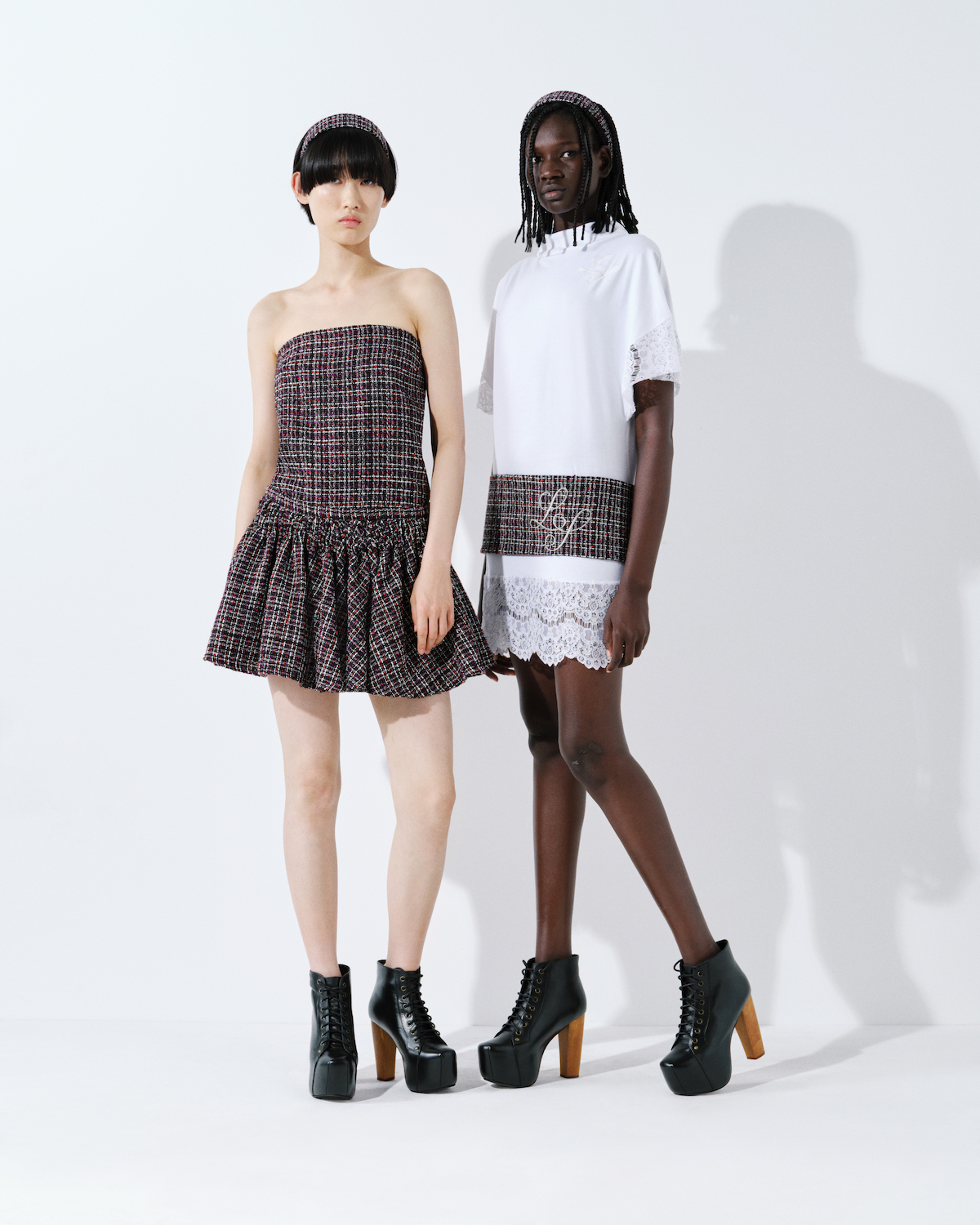
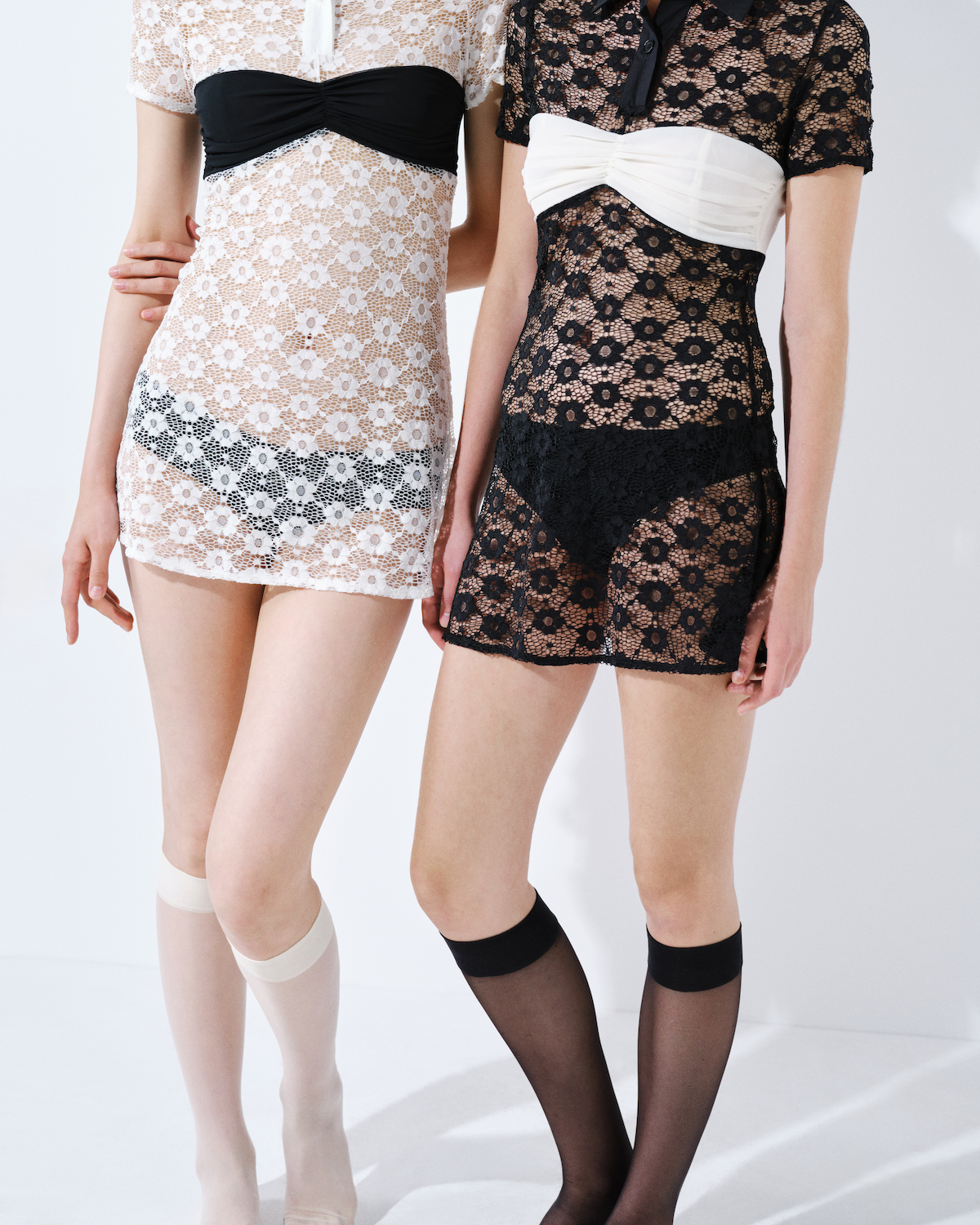

Women’s History Museum designers Mattie Barringer and Amanda McGowan have designed this hybrid, ethereal future-kind — chainmail bikinis, thongs made of pennies, skunk fur, two pigeons in flight appliqued to a bra top, sharktooth headpieces, and long veils.
"Indestructible Doll Head" feels like a continuation of "ENFER", both collections telling a tale of the mischievous nature of survival as we are whipped around by ever-changing constraints. Though they focus on New York City, the theme bleeds across space and time. Barringer and McGowan are world-builders, inviting us once again into a realm that reflects their interior and exterior worlds. We adapt, we defend, we sacrifice, we attack. The looks are unflinching, extraordinary, and — like the fantasies they conjure — impossible to resist surrendering to.
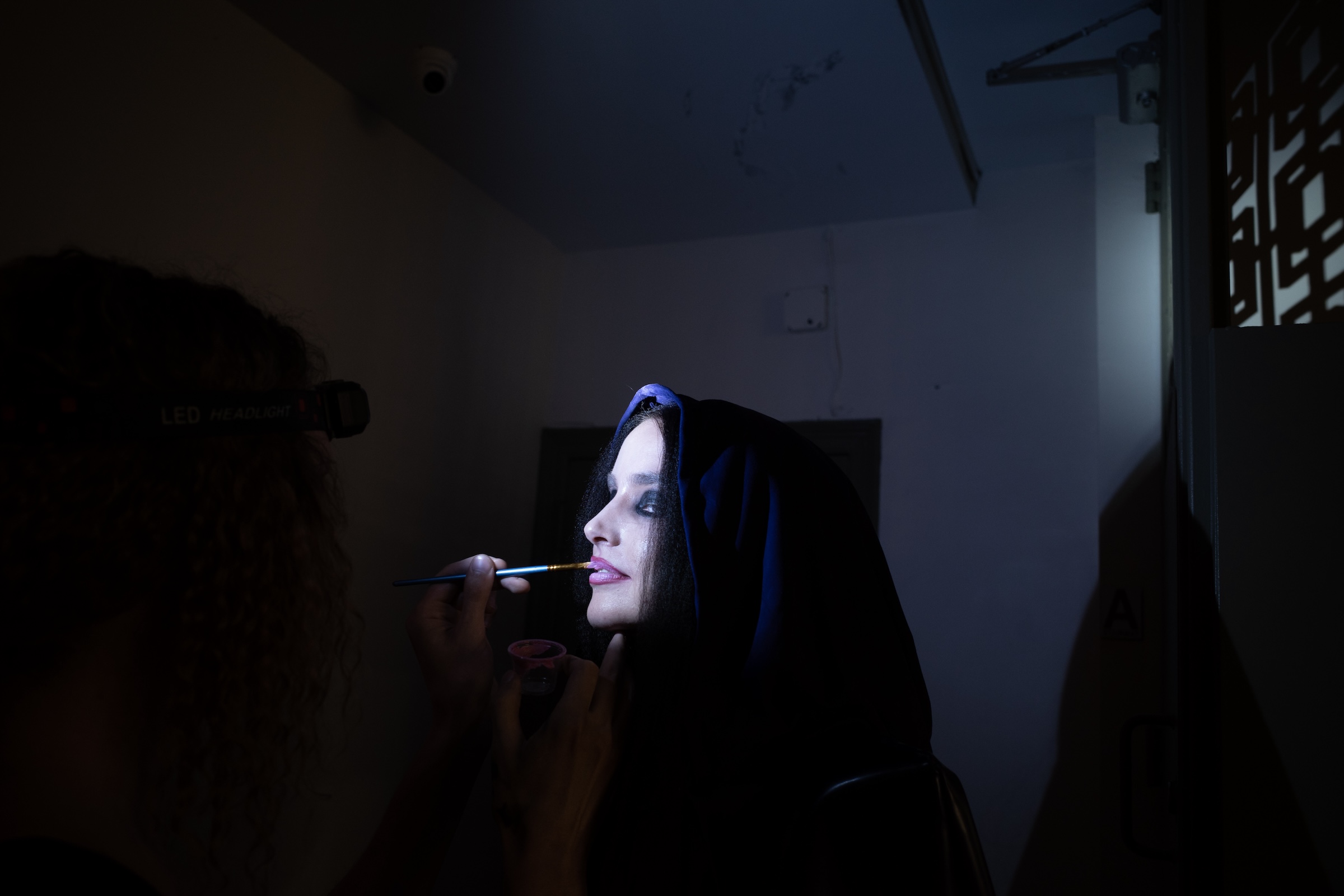
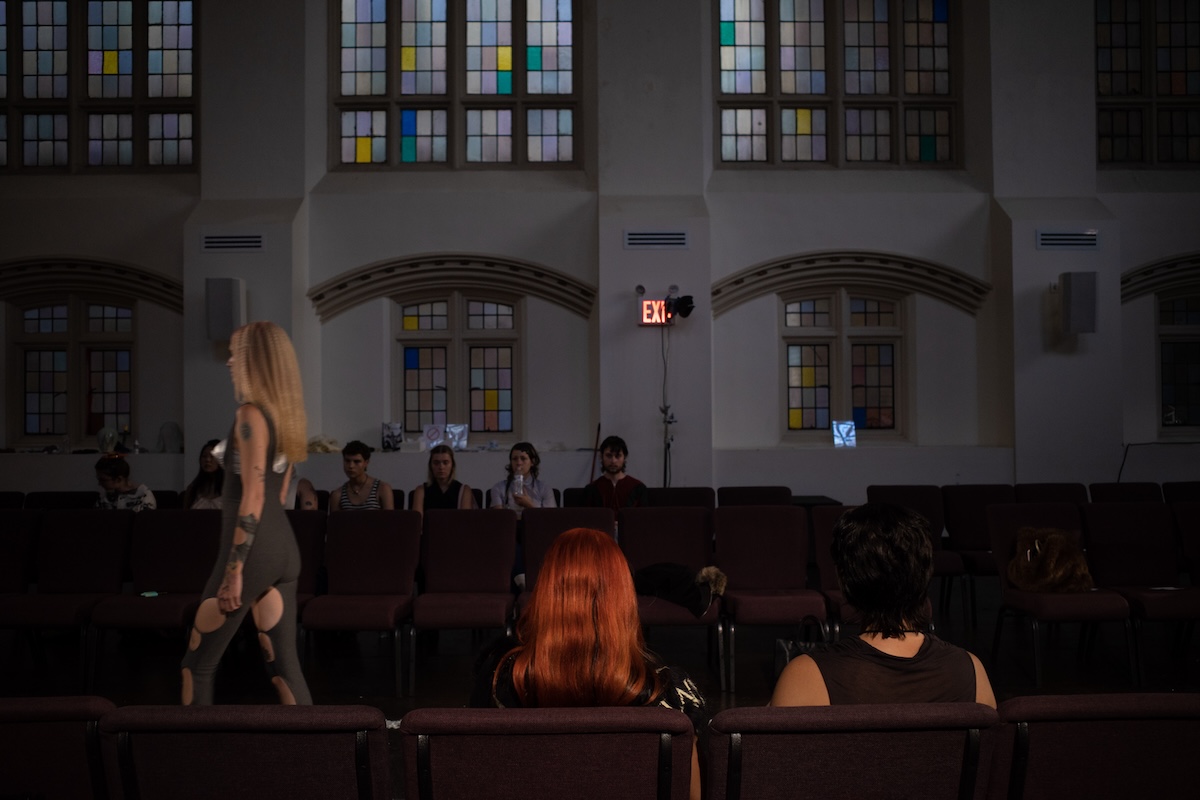
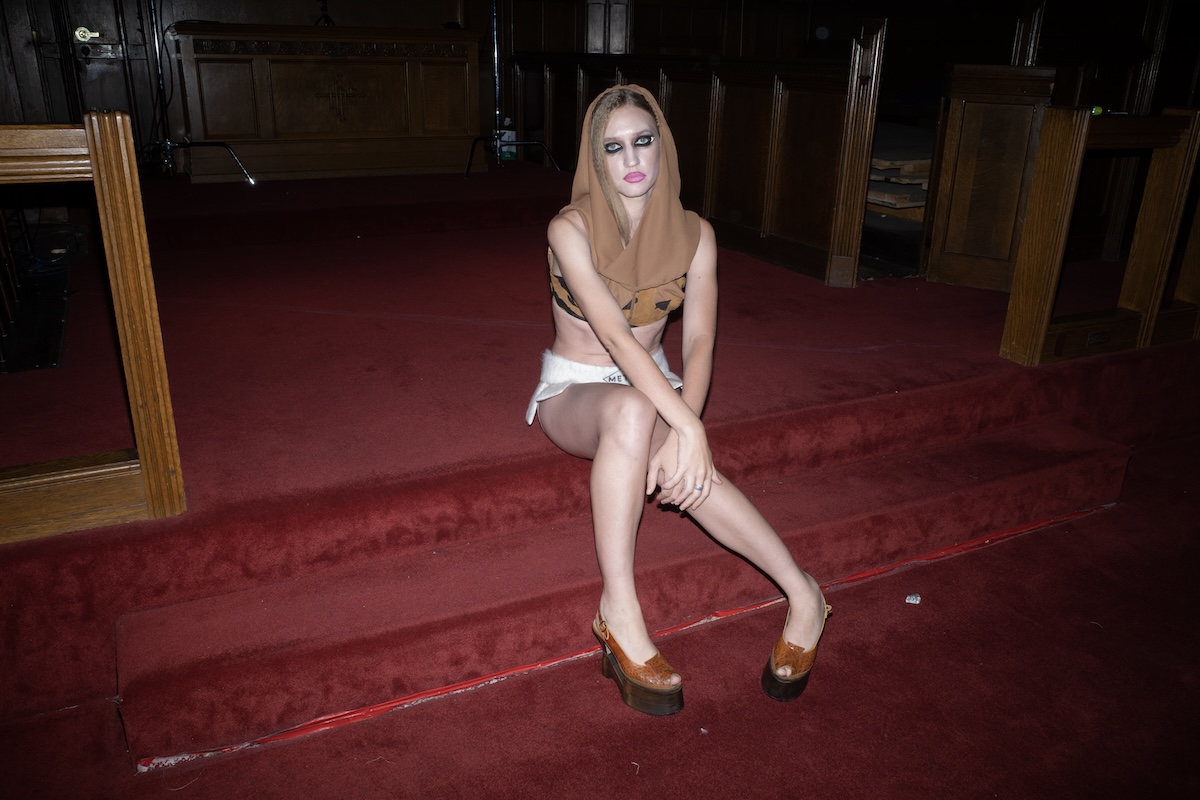
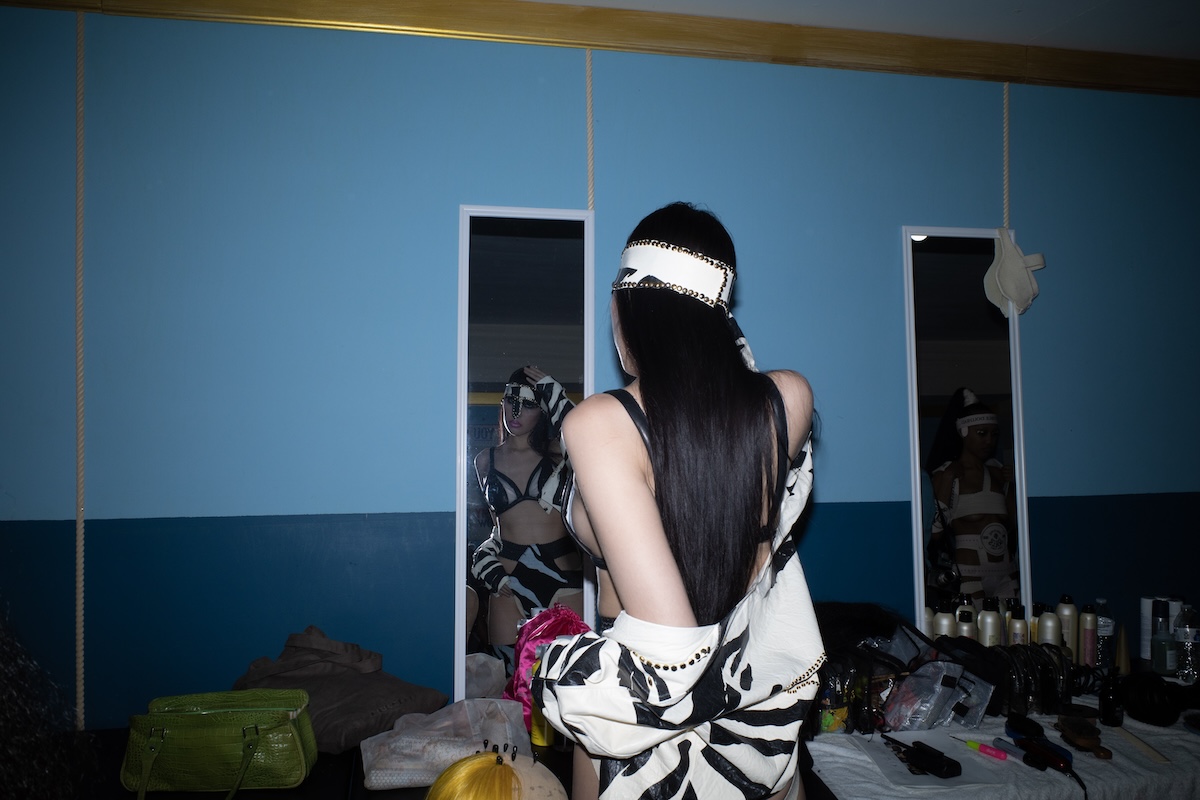
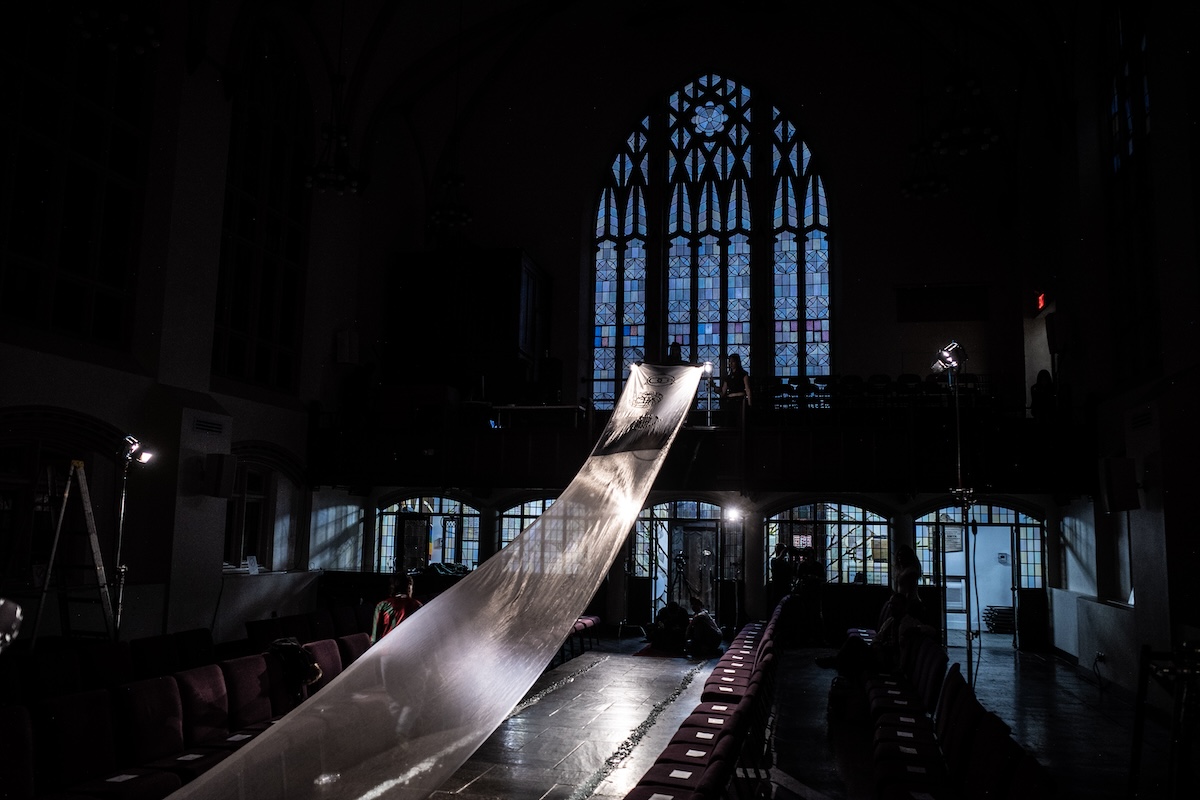
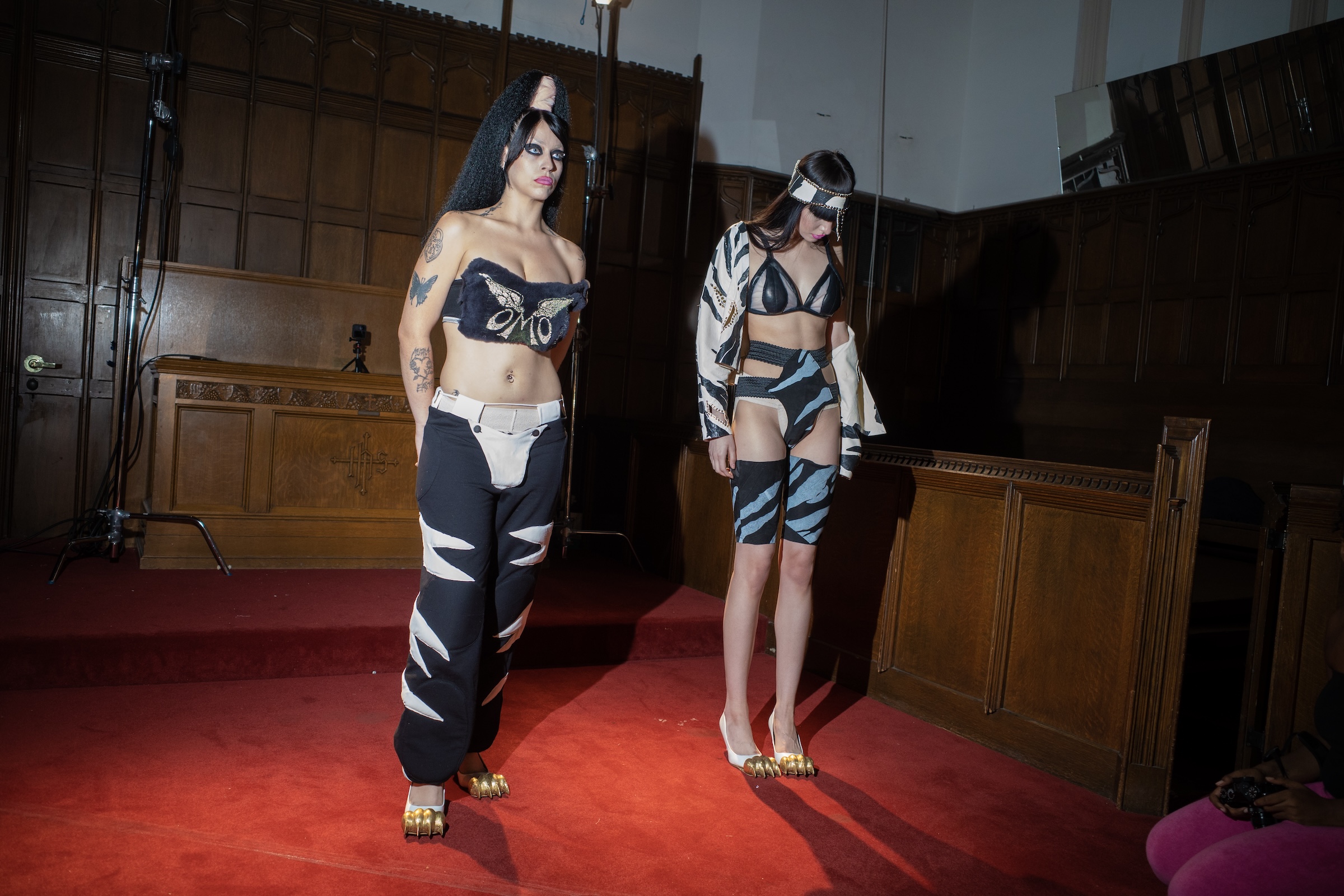
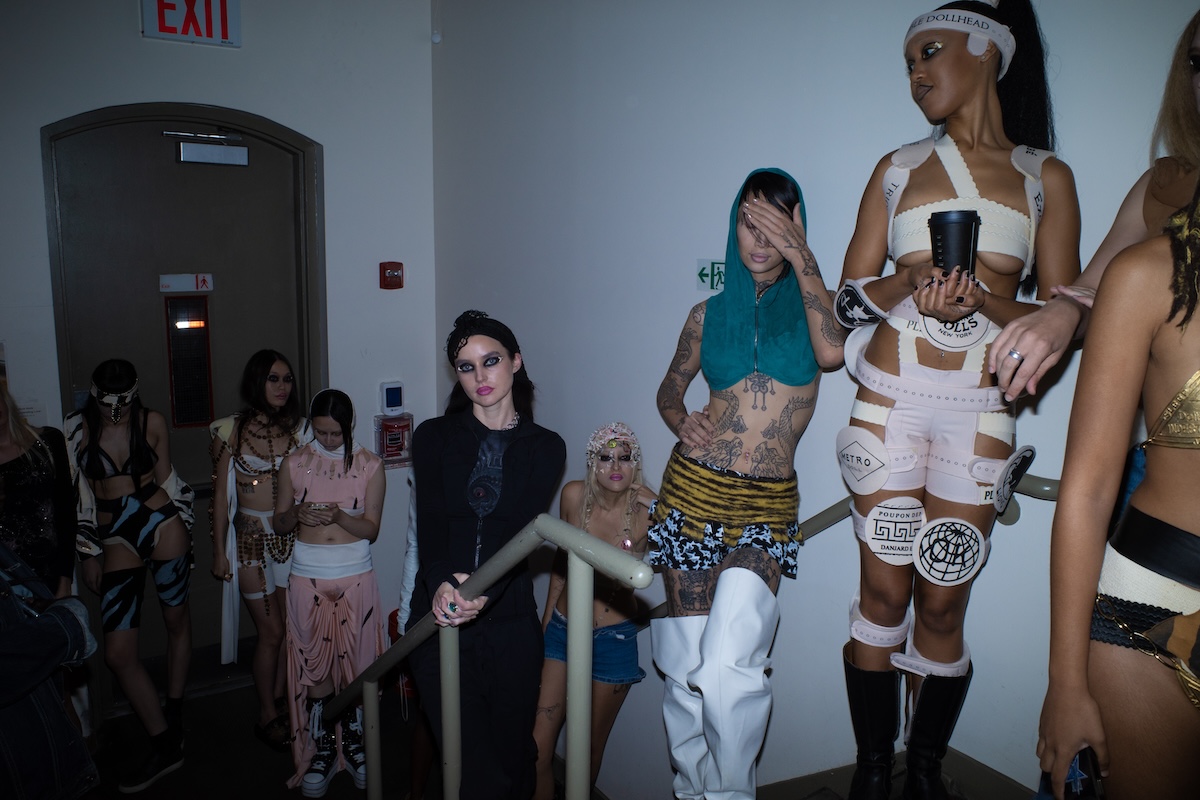
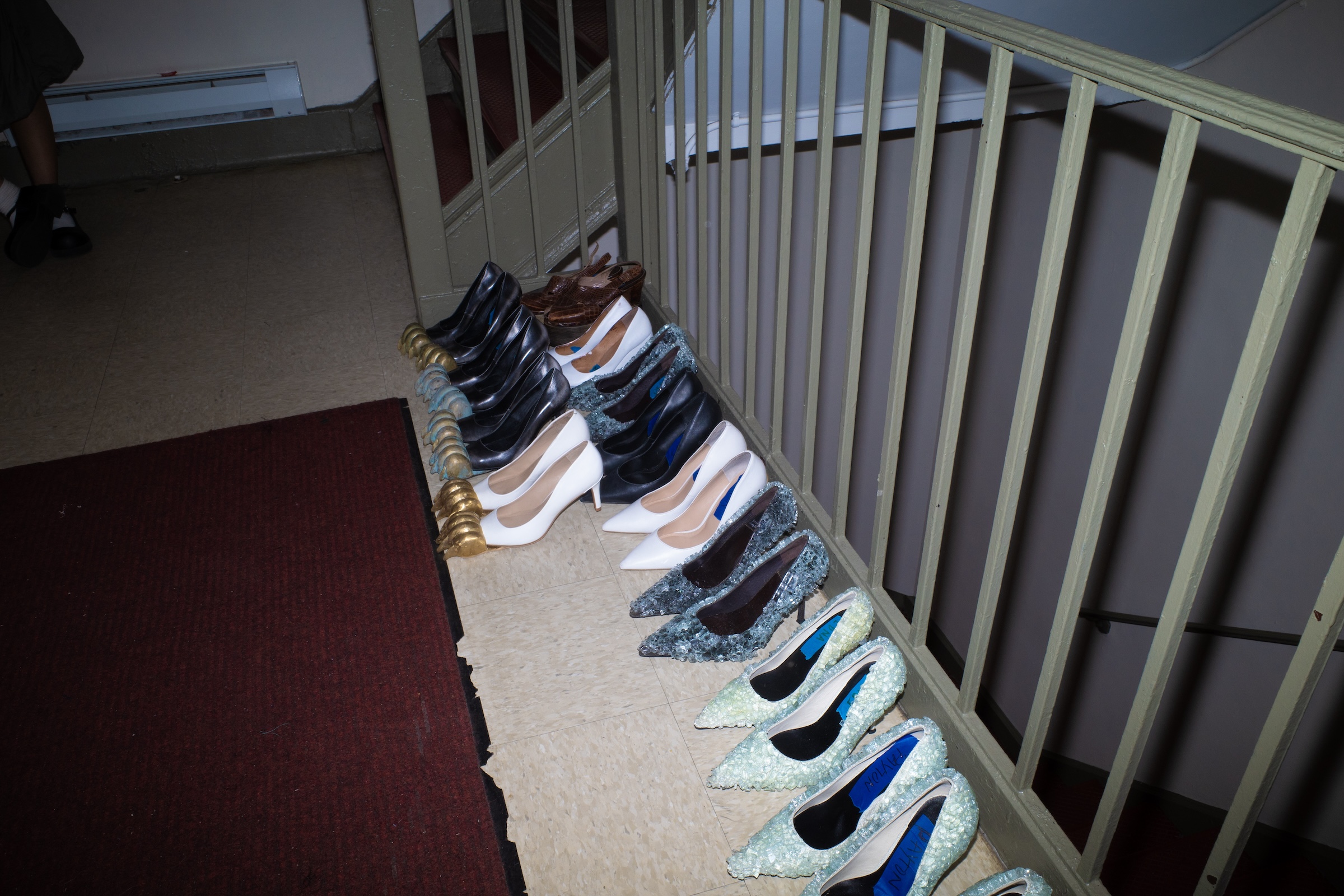
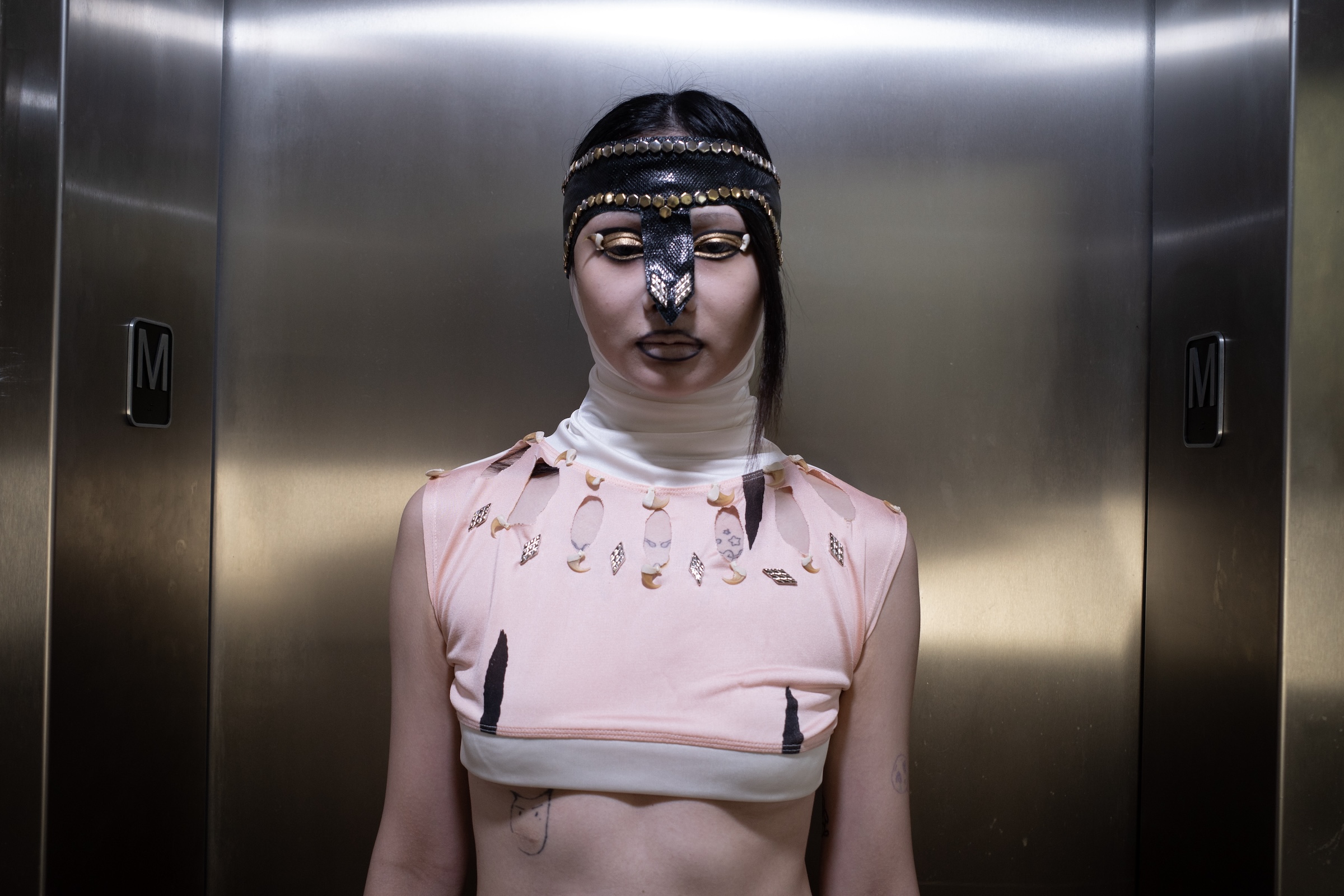
"ENFER" and "Indestructible Doll Head" both explore themes of survival and adaptation in New York City. How do you see these themes evolving between the two collections, and what continues to inspire your vision of this 'hybrid, ethereal future-kind'?
Amanda McGowan— New York City still feels harsh! So in a lot of ways we are in a similar headspace as the last collection, but perhaps stronger and more confident? “Indestructible Doll Head” was a lot more feminine than our last collection, “Enfer.” “Enfer” had a lot of pieces imitating actual body armor and antique mens’ sports attire — perhaps subconsciously we felt like we almost needed to protect ourselves like we were going into battle or a sports arena. With this recent collection we felt like we could be a bit softer and feminine with the clothing and show our underbelly.
In "Indestructible Doll Head", we saw the repeated use of bold screen-printed text, including the phrase "THEN YOU WIN." What messages are you hoping to send through these phrases?
AM— The phrase: “New York, first they ignore you, then they laugh at you, then they fight you, then you win,” really resonated with us so we printed it on a few items in this collection. While working on Women’s History Museum for the past 9 years there were times we really felt like underdogs. Especially in the beginning when we started out as young people and were more self conscious and unsure where we fit in creatively. There definitely have also been people over the years that didn’t understand what we were doing or that took us seriously. That feeling of being an underdog and misunderstood is a feeling many people experience in the creative “scene” in NYC and beyond. Both of us also individually dealt with being ignored or bullied by our peers growing up as well, so perhaps there’s also an even deeper wound there. But overall we wanted to express the possibility of triumph over the naysayers, whoever they may be in your life — New York or beyond.
There’s a sense of both chaos and beauty in the garments — an invitation to surrender to these worlds you’ve created. How do you strike a balance between the harsh, survivalist imagery and the ethereal, dreamlike elements in your designs?
Mattie Barringer— In our work relationship which is obviously a collaboration, we are always confronted with duality within our personalities and approaches. While we share such a strong creative and visual language, we are so opposite in so many ways. I think this shows up in our visual world a lot because it can seem so full of contradictions but in the end it feels so true because those opposing things whatever they are make up the whole picture. The need to survive a sometimes bleak reality necessitates the search for beauty in order to actually survive it.
Your collections feel deeply rooted in New York City's dark, flirtatious landscape. How has the city itself shaped your aesthetic, and do you see your work evolving beyond the city’s influence in the future?
MB— When we started making clothes it felt like we were creating a world apart from New York where now the themes we explore are much more directly related to our environment. As time went on living here, we felt so imprinted on by the city for better or for worse. Amanda is from New York and I've lived here since 2009 — we have a lot of pride in New York, living and working here. New York City made me into the person I am and I'm very grateful to be able to make my life here.
AM— We’ll always be bound to NYC in some way since we both essentially grew up here, but life is hopefully long and I definitely see our work developing beyond New York City’s influence. We already feel like time travelers sometimes and are untied to our current time, so moving beyond our place of origin is definitely plausible.
The futuristic, animalistic elements in "ENFER" and the doll-like strength in "Indestructible Doll Head" suggest a push-and-pull between the primal and the constructed. What conversations or ideas are you hoping to spark about identity and power through these collections?
MB— I think they are both considered "less than human". This dehumanization is similarly applied to women and queer people within a patriarchal lens and I think in these collections there was an embrace of that, identifying with that which has been devalued within our world. I also think animals and dolls both hold such mystique for humankind because they don’t have language. In this absence they have such power over us, because we know their secrets will never be told.
With such a theatrical, visceral presence on the runway, what role does performance play in how you conceptualize your designs? How do you ensure the models’ artistry is on full display?
MB— We've always casted our own shows, often using friends but we've also met a lot of people who are now friends through asking them to model for us. In the process of making stuff it can feel so insular and punishing and there's a point where you think these hyperspecific things you've labored over for months at a time will never see the light of day. When we get to work with the incredible models that we do and see our clothing come alive by someone's spirit literally animating it... there's not a better or more rewarding thing as an artist. We've been so lucky to instinctively gravitate towards people who really get what we're trying to say and help us in bringing this world to life. Though we also make art in other forms we've always felt doing fashion shows is artistically and even spiritually important for this reason.
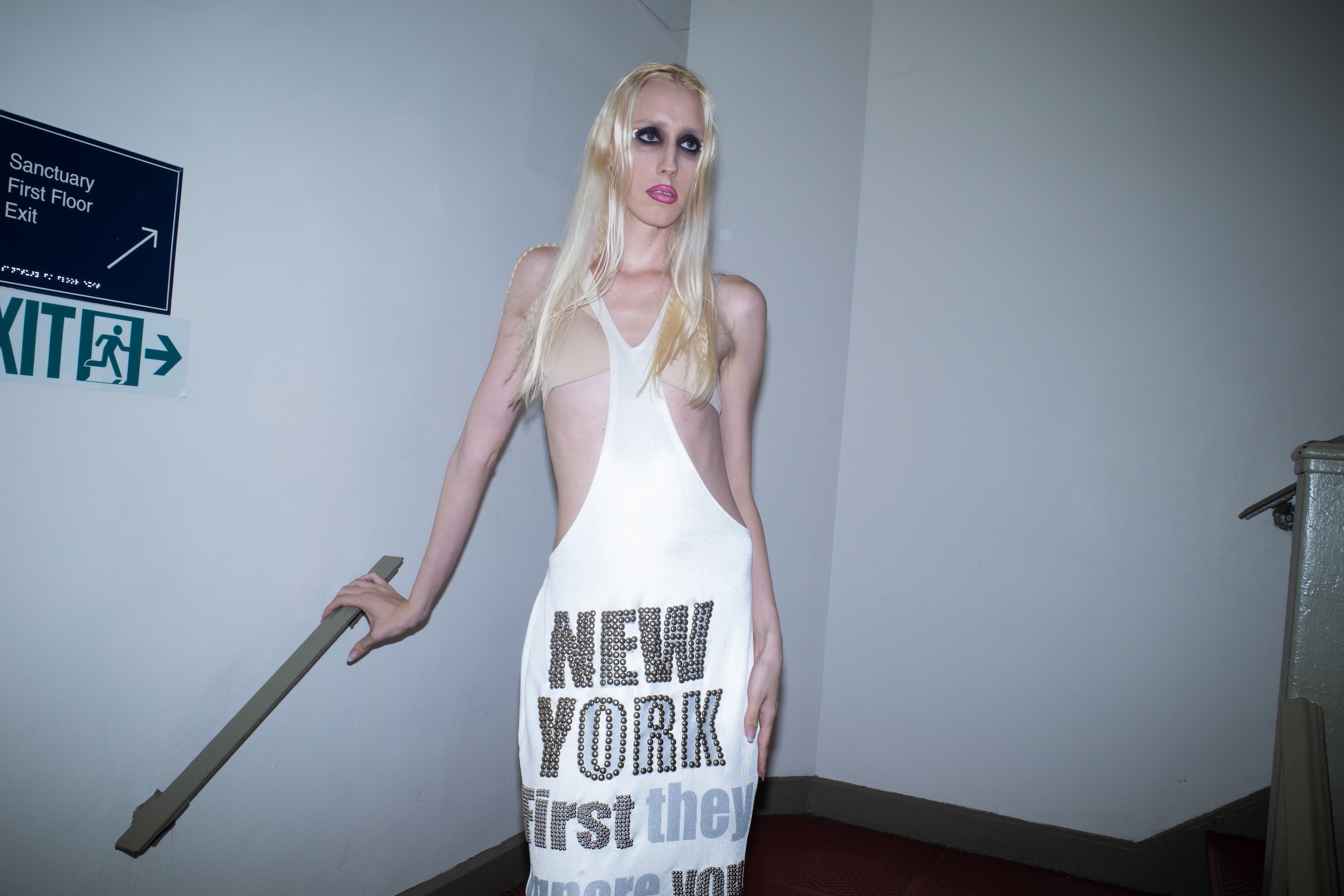
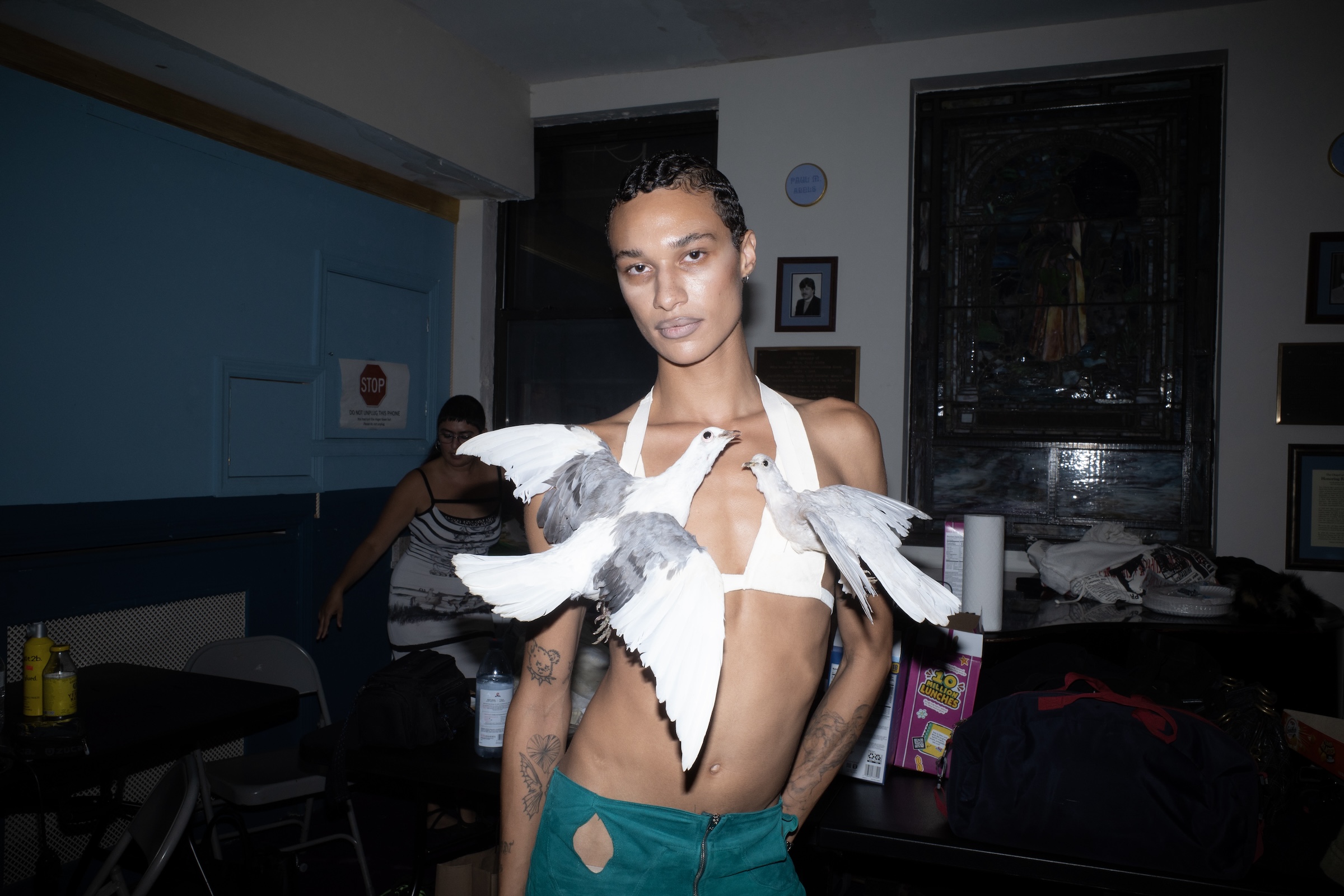
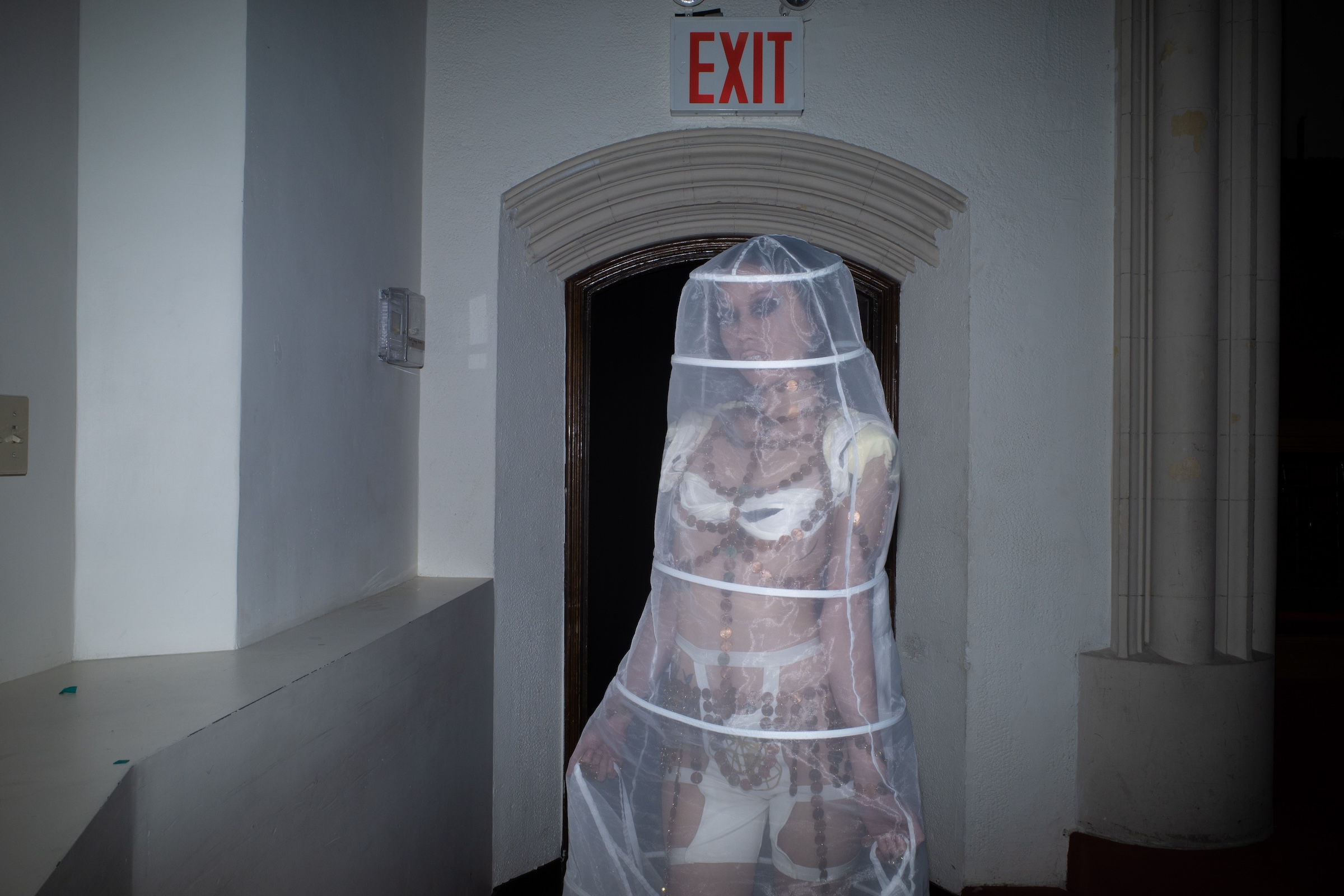
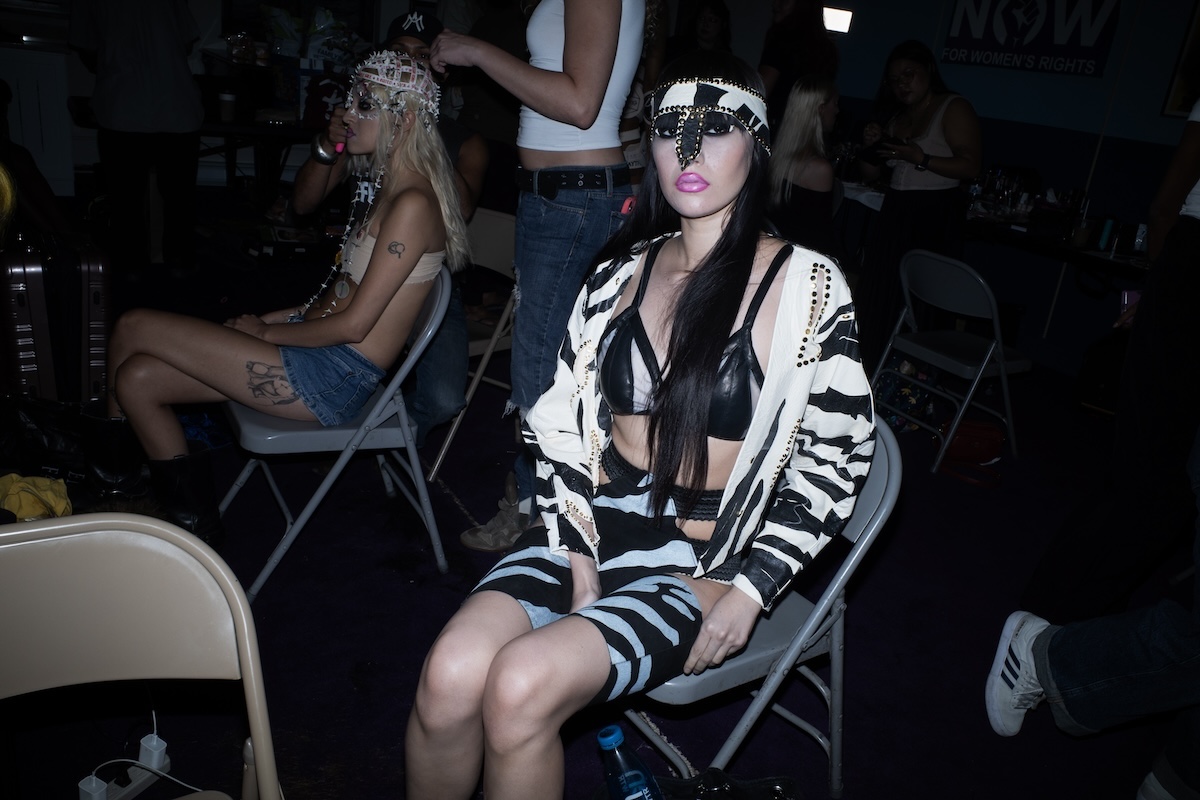
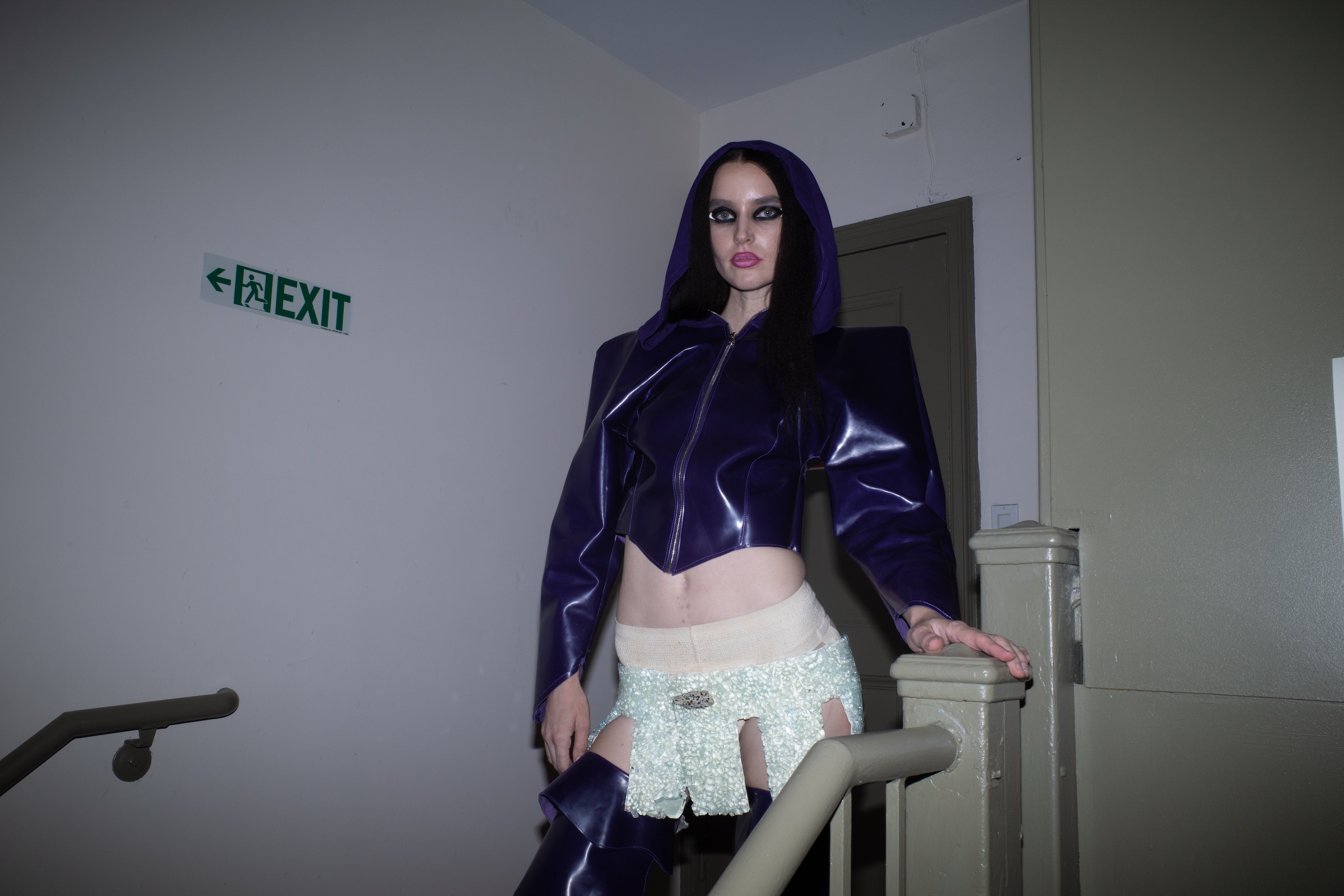
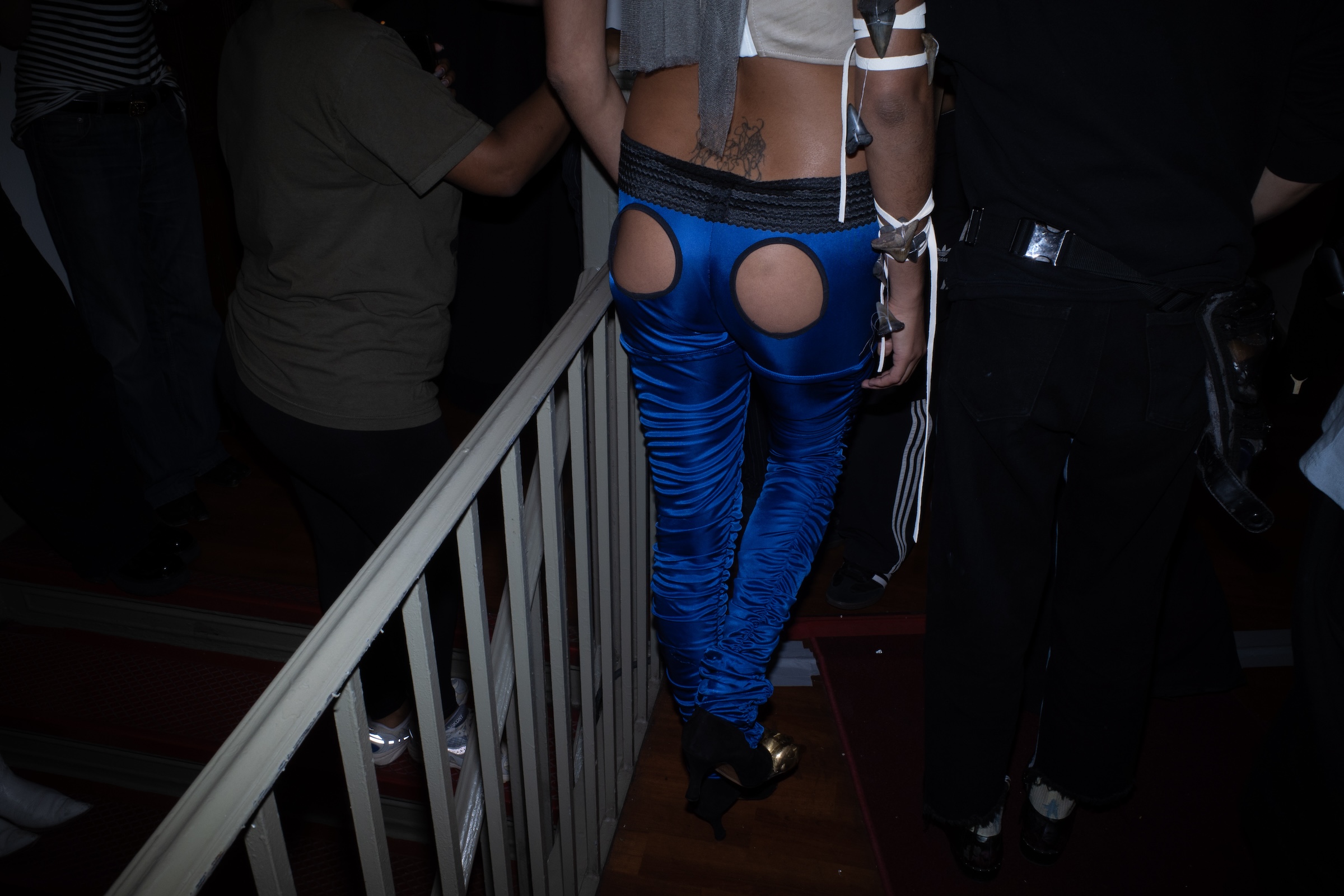
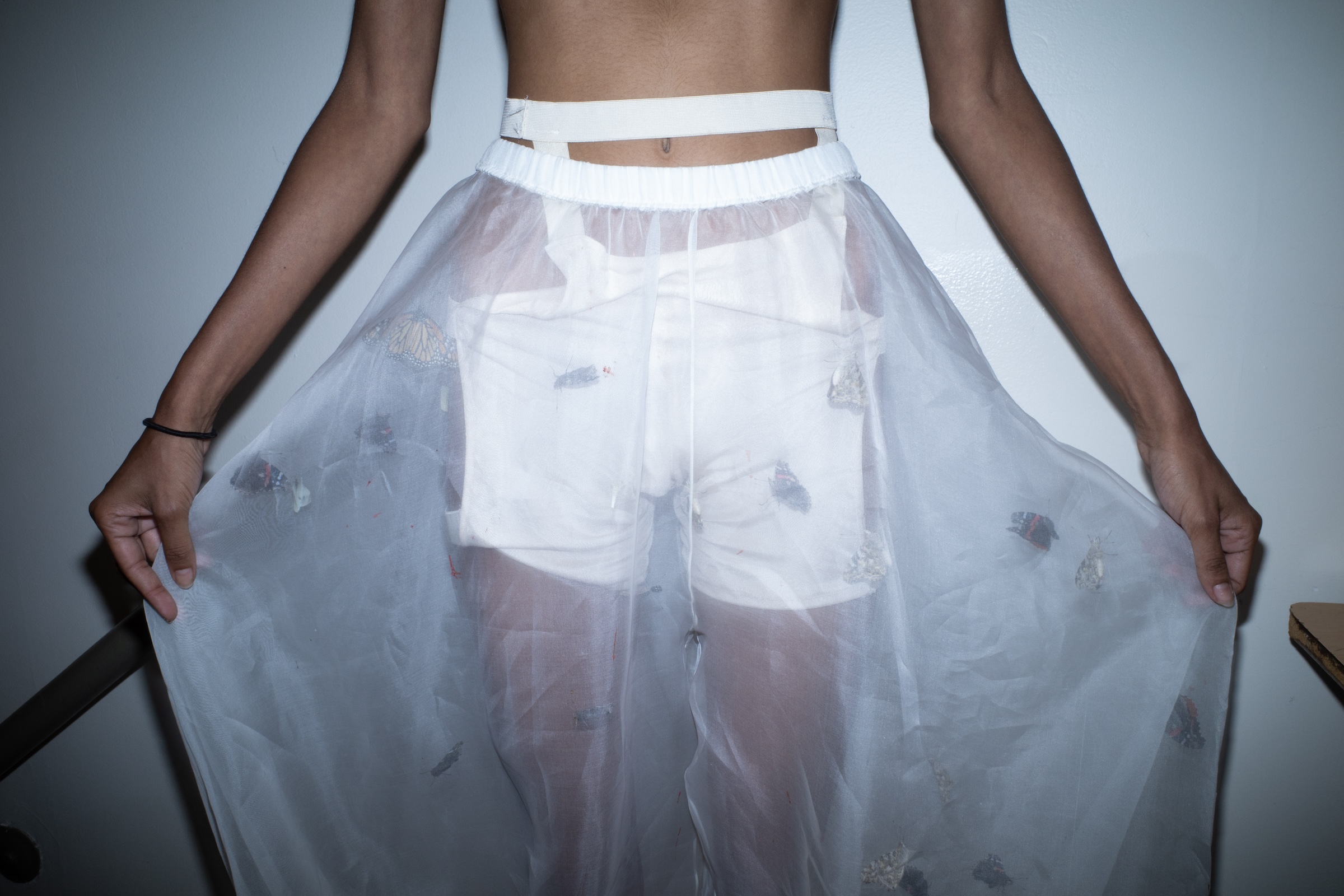
You’ve received recognition from multiple editors as a NYC brand to watch. Has that influenced your approach to your work since returning to the fashion week calendar?
AM— It’s impossible not to feel a little bit of pressure because of that, but at the same time we design for each other for the most part. I’m more concerned about what Mattie thinks of my ideas and the things I make than any editor or person. She’s my primary audience and influence.
What excites you most about being seen as a key player in this space?
MB— New York is relatively such a young city and it's really exciting to be part of its unfolding sartorial lineage. To me, New York is synonymous with freedom and no matter how bought up and increasingly unattainable life becomes here, something in its spirit remains so anarchic. I feel like there is a feminine rebelliousness so specific to New York that hasn't been adequately expressed in its fashion history because as a designer here you're forced to be so commercial and therefore mainstream and digestible.
AM— Historically, most known and celebrated New York designers have been extremely commercial and perhaps not as theatrical or experimental as their London and Paris peers, so it’s exciting to feel like perhaps we can express like Mattie said something that hasn’t been adequately portrayed or celebrated here.
Are there any emerging themes or concepts you're eager to explore next?
MB— Certain themes that have been with us since the beginning will always be trying to express themselves in different forms. In the latest collection we explored the contradictory desires we experience in our love of clothes, the tendency towards exhibitionism and the desire to hide and occlude oneself, sometimes in the same outfit!
AM— More so than themes, we definitely want to push and corrupt what a fashion show looks like. We look forward to experimenting with different methods of presenting clothing in the future.